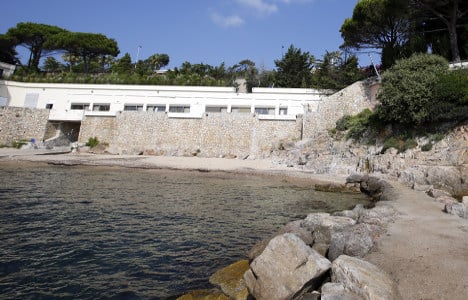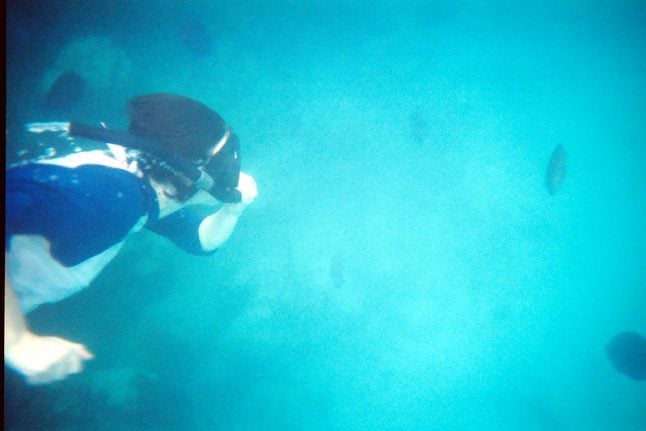Authorities in the south of France have provoked a storm of criticism after it emerged that a Saudi king has been allowed to commandeer a public beach all for himself.
King Salman is expected to arrive in the Riviera this week where he and his family will stay at his plush villa which stands just metres from the Mirandole beach in Vallauris.
Local beachgoers from nearby Cannes and Antibes, have protested against the fact they will be barred from the beach for the entire duration of the family’s stay.
Saudi royals further inflamed relations with local hosts when they were given the green light to build an elevator down to the sand to make it easier for them to access the beach from their villa.
But Francois-Xavier Lauch, director of the office of the Alpes-Maritimes prefecture, told The Local on Monday that the closing of the beach was simply a question of security.
“This move is consistent with the visit of a head of state and it would be the same if it was President Hollande visiting or Barack Obama,” said Lauch.
“Measures of security need to be taken for the visit and one of them is to block off access to the beach.”
“It’s only ten metres long. It’s not one of the most prominent beaches of the Riviera and is only visited by about 20 people a day. When you take this into account then closing the beach is a proportional measure.”
The story of the Saudis effectively privatising a public beach has made headlines around the world and led many to presume that the royals had paid French authorities for the pleasure of having their own beach.

Lauch however angrily dismissed these suggestions.
“We are shocked by these claims. There has been no payment. This is a visit by a head of state. It’s out of the question to talk about money,” he said. “It’s a question of security.”
He also dismissed the suggestion that the Saudis had wanted to beach for themselves because they may have been offended by French beach culture and the prospect that some women may sunbathe topless.
“It's got nothing to do with that,” he said.
Authorities say the king’s villa is so close to the beach that no risks can be taken.
“The beach is almost in the middle of the residence. Cutting off access to the beach is just like cutting off access to an underground car park situated under a meeting room where heads of state would meet,” he said.
“We understand that people will regret that the beach is closed during the visit by a head of state, but we are acting within French law and this is the best option,” Lauch said.
He said the prefecture had total confidence that all trace of the elevator that has been installed on the beach would be removed once the royal family’s Riviera sojourn was over.
While some complain about the public being denied access to the beach, Lauch said the royal visit would be extremely beneficial to the local economy.
The Saudis are expected to bring with them an entourage of several hundred people who will stay in hotels around the area.
Local newspaper Nice Matin said hundreds of rooms had been booked out in the resort of Cannes to cater for the group.
“The visit is extremely positive for the local economy. There’s a certain number of professions, for example hoteliers, who are very happy to have the Saudis visit,” Lauch said.



 Please whitelist us to continue reading.
Please whitelist us to continue reading.
Member comments